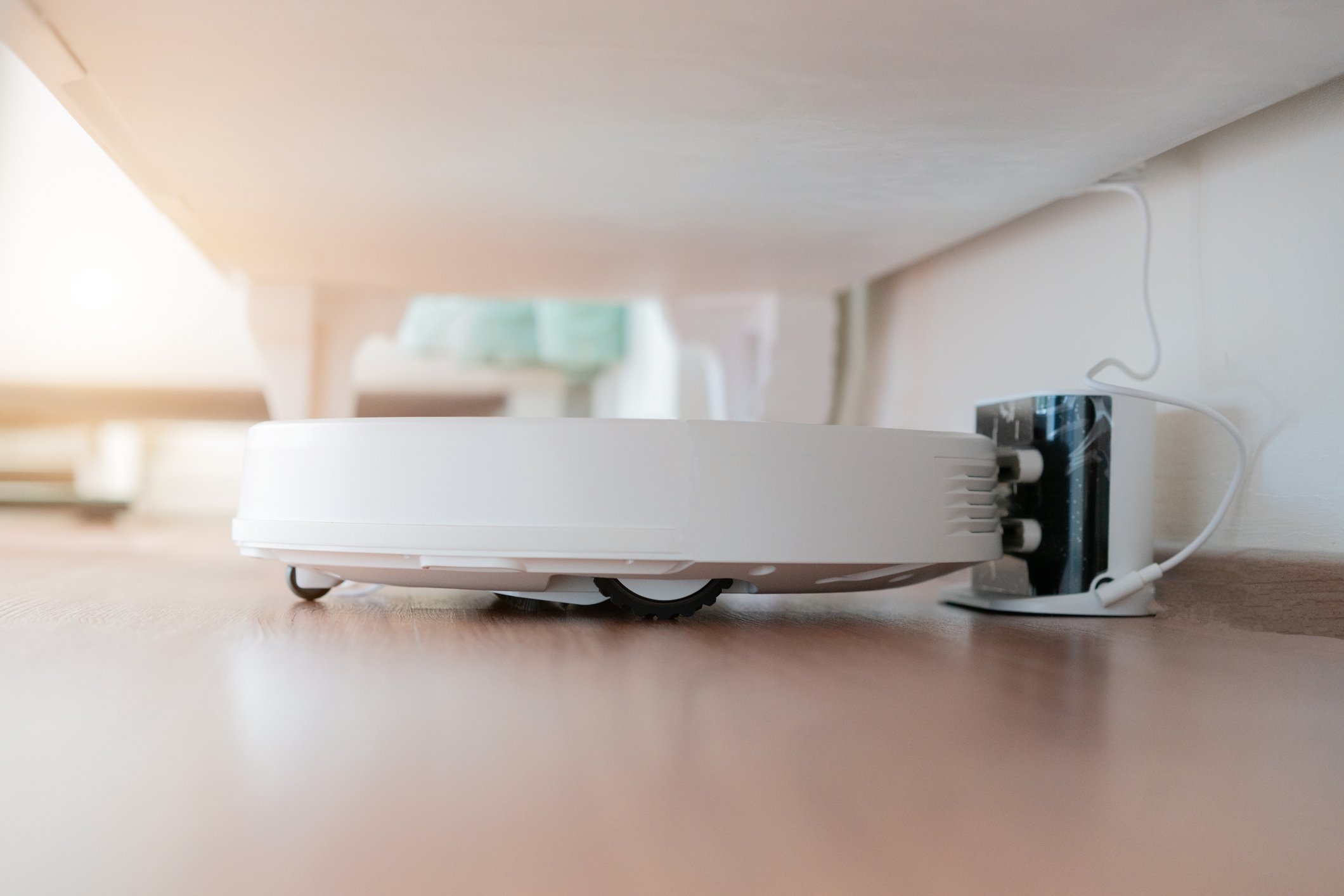iRobot Corporation (IRBT +0.00%) is best known for a single product in its popular Roomba robotic vacuums, so it's easy to forget the company has one of the strongest intellectual property portfolios in the world. But on Monday, the home robotics specialist reminded investors of as much.
More specifically, iRobot announced that it has reached an agreement in a patent dispute with Black & Decker. While most of the terms remain confidential, they undeniably swing in iRobot's favor; as part of the deal, Black & Decker has agreed to discontinue sales of all home robotic vacuums for a "certain period of time" after it sells through its existing inventory. In exchange, iRobot will remove Black & Decker from its pending U.S. International Trade Commission investigation and a related case in the U.S. District Court of Massachusetts.

IMAGE SOURCE: IROBOT CORPORATION
Another one bites the dust
"This settlement represents another successful milestone in the enforcement effort iRobot initiated earlier this year," said Glen Weinstein, iRobot executive VP and chief legal officer. "iRobot believes in the strength of its patents, and the agreement by Black & Decker to discontinue sales of any home robotic vacuums for a certain period of time signifies, yet again, the value of iRobot's intellectual property."
To be fair, this agreement shouldn't be terribly surprising. When iRobot initially announced that it had filed legal proceedings for patent infringement against 11 competitors in April, I pointed out that at least one of Black & Decker's widely distributed robotic vacuums bore a striking physical resemblance to iRobot's most popular models.
This also isn't the first fruit of iRobot's recent move to enforce its patents. In September, iRobot reached a similar confidential agreement with Taiwan-based Micro-Star International (MSI), a manufacturer of key components within several Hoover robotic vacuums. But in that case, iRobot revealed that MSI had agreed to pay an undisclosed sum of money and to exit the global robotic-cleaning industry entirely. In exchange, iRobot agreed to remove Hoover Quest 600, 700, and 800 products from its complaints.
More to come?
But iRobot is still pursuing action against Hoover for alleged infringements by its higher-end Quest 1000 vacuum. And it still has yet to settle other complaints against Bissell Homecare, bOBsweep and affiliates, Taiwan-based Matsutek Enterprises, and China-based Shenzhen ZhiYi Technology and Shenzhen Silver Star Intelligent Technology.
Of course, that doesn't mean all of iRobot's competitors will play nice. Recall iRobot obtained preliminary injunctions in Germany against Shenzhen Silver Star back in 2013 for the infringement of four patents in the company's competing MyGenie line of robot vacuums. In serving the injunctions, the court even had "infringing goods" seized from that year's IFA consumer electronics show in Berlin.
Finally, investors should remember there are a number of powerful competitors whose antonymous vacuums don't infringe iRobot's patents -- at least so far as we can tell right now.
When Dyson first unveiled its 360 Eye robotic vacuum a few years ago, for example, iRobot management noted that the vacuum-industry titan had gone to great lengths to engineer its creation around iRobot's IP -- though the 360 Eye later proved to be a less-than-effective rival to iRobot's higher-end offerings. And more recently, the launch of an affordable new robotic vacuum from SharkNinja stirred worries that iRobot might suffer lost market share on the lower-priced end of the market.
Barring another update on its patent-enforcement actions, investors will need to wait for more color on whether the competition is indeed hurting sales when iRobot announces fourth-quarter 2017 results in early February. Until then, however, we can rest easy knowing the company is making at least some progress asserting its influence.





